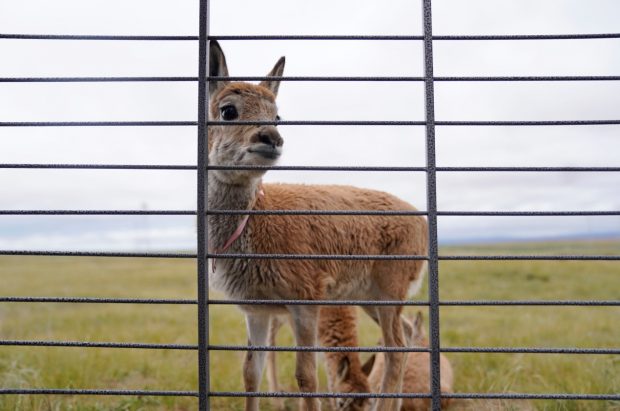
Herdsmen contribute to eco-protection in China’s major-river headwaters

An innovative eco-monitoring system is contributing to the ecological protection of China’s Sanjiangyuan area, the home to the headstreams of Yangtze, Yellow and Lancang (Mekong) Rivers in Qinghai Province. Local herdsmen are recruited in the region to help protect and improve the environment by serving as eco-monitors, capturing substantial valuable images of wildlife.
Tamdrin Wende is a herdman from Yunta village, Haxiu township of Qinghai’s Yushu Tibetan Autonomous Prefecture. He and other 14 fellow villagers were elected as the first batch of environmental protection monitors in Dec. 2012. Using infrared cameras, GPS devices and telescopes, they have taken considerable pictures of rare animals over the past 6 years, including the snow leopards, leopards and Thorold’s deer. Yushu Tibetan Autonomous Prefecture located at the Sangjiangyuan area, is the heartland of the Qinghai-Tibet Plateau. It is one of the major areas in China that are densely populated with large rare animals
The Sanjiangyuan National Park is home to 270 species of terrestrial vertebrates, including 62 mammal species and 196 bird species. As the wildlife habitats are mostly located in remote and high-altitude areas, it’s too costly to carry out biodiversity surveys due to the poor transportation and harsh climate. As a result, the best solution to establish a long-term monitoring system is training local herdsmen. So far, 264 herdsmen have been employed in the area, using 505 infrared cameras to collect images and videos of the rare animals.
In recent years, they have captured the world’s first image of snow leopard mating and intercourse, as well as the valuable photos of leopard raising its cub. Data from the Yushu forestry bureau showed that, under the cooperation with the Peking University Center for Nature and Society and Shan Shui Conservation Center, the infrared cameras in Yushu could cover 8,000 square kilometers. More than 600,000 photos of the wildlife were taken during the past six years, including over 10,000 images of rare species such as leopards and snow leopards.
Besides, 17,200 herdsmen outside of Yushu have also become environmental protection monitors at the National Park, as an important force for ecological protection of the nature reserve. Thanks to their familiarities with the local terrain, the herdsmen have substantially improved the effectiveness of daily patrol, auxiliary law enforcement, and ecological monitoring. At present, more and more herdsmen are transforming into the guards of the ecological environment, said said Li Xiaonan, director of the administration bureau of the Sanjiangyuan National Park. A smarter ecological protection team would be built for the national park, Li noted, adding that the herdsmen will receive more professional trainings in field survival and emergency care. In addition, they are also expected to be equipped with satellite communication terminals and digital devices for patrol.
By Li Xinyi
(People’s Daily)


